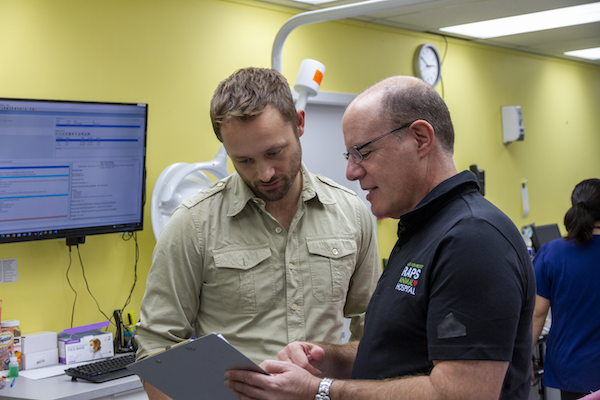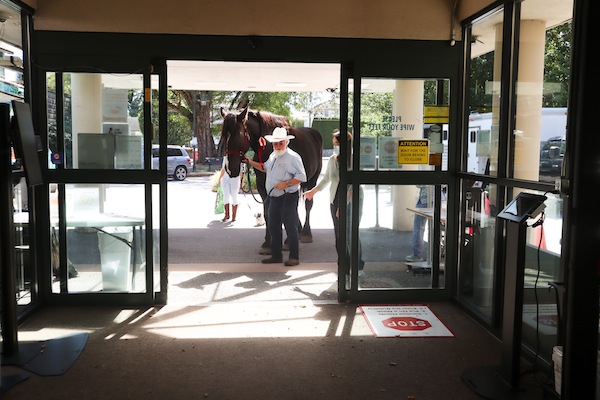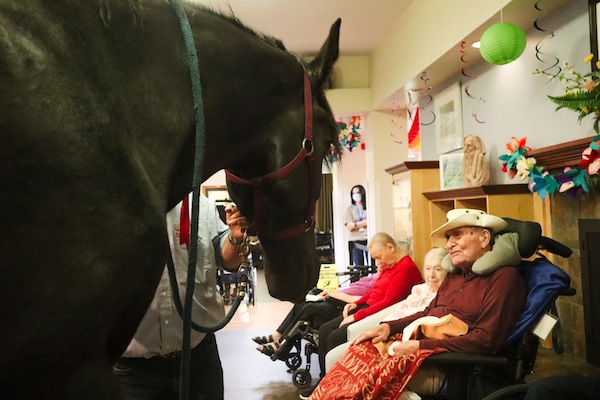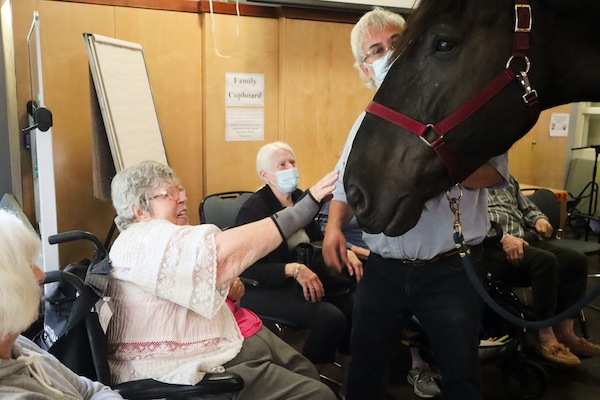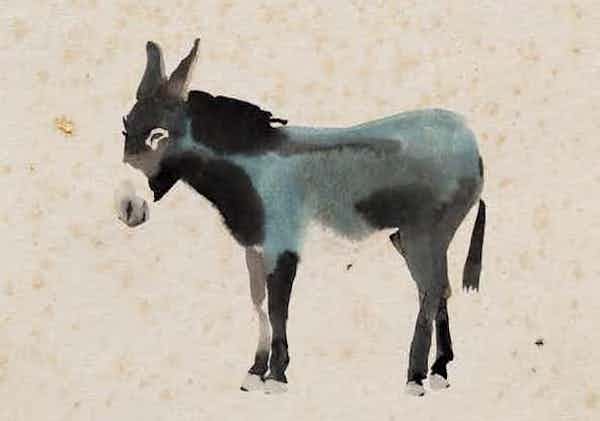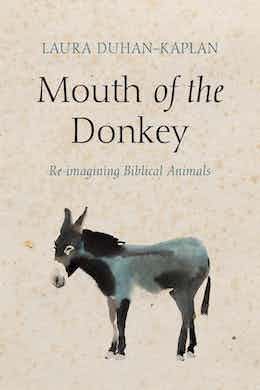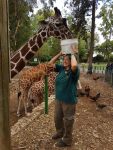Pets & Pickers producer Tyson Hepburn confers with Regional Animal Protection Society chief executive officer Eyal Lichtmann during the film shoot.
The Regional Animal Protection Society (RAPS) in Richmond operates a cat sanctuary, a fostering network, thrift stores and a full-service animal hospital, along with an adoption and education centre. RAPS has grown into one of Canada’s largest and most innovative nonprofit animal-serving organizations – and it will be featured in the TV show Pets & Pickers, the second season of which airs Saturdays at 5 p.m. Pacific on Animal Planet.
RAPS began in the 1980s as the Richmond Homeless Cats Society. Driven by a small team of volunteers, it housed countless feral, abandoned and surrendered cats. In 2005, the organization pivoted to become the Richmond Animal Protection Society, extending its standard of care and no-kill animal policy to all of Richmond’s animals. In 2017, it became the Regional Animal Protection Society to better reflect the geographic diversity of its patient base.
For Jewish community member Eyal Lichtmann, executive director and chief executive officer of RAPS, “pets are part of the family.”
Lichtmann joined RAPS in 2016. His resumé before RAPS included a stint as executive director of the Vancouver Hillel Foundation, where he helped raise $10 million to build the University of British Columbia’s current Hillel House. With proven capabilities in fundraising, he was asked to lead a fundraiser with RAPS, and eventually became their CEO.
Lichtmann is passionate about “taking nonprofit organizations to the next level.” At RAPS, he created a new mission and vision for the organization, centred around helping both animals and their owners. He contends that saving more animal lives can be accomplished by helping individuals overcome any financial obstacles they may encounter in caring for their pets.
Recognizing that many pet owners cannot afford quality animal care, Lichtmann has made affordability a core focus of RAPS: “we are the only clinic we know of that offers interest-free payment plans based on the person’s ability to pay,” he said. In addition to giving annual community subsidies amounting to $1 million, he said, RAPS still generates profits, directing them towards the cat sanctuary, which houses more than 500 cats at the moment.
“Everyone is entitled to have a pet as part of the family,” said Dr. Joseph Martinez, one of RAPS’s veterinary staff. Martinez has been with RAPS since Lichtmann joined in 2016. His passion lies in treating exotic animals, such as reptiles and small mammals, an area not many veterinarians are knowledgeable about.
Having grown up on a farm in the Negev Desert in Israel and being the son of a farmer from Sicily, Martinez developed a deep love for animals. He even became a vegetarian at the age of 10, despite his family’s meat-loving Italian culture. Animal care is second nature to him, he said, noting that “animal welfare started in the Bible,” and has only been enhanced by modern-day science and technology. When he moved to Vancouver 30 years ago, Martinez was drawn to RAPS by a drive to help the less fortunate – “the idea is to not leave anybody behind in terms of funding,” he said.
“Jewish values are definitely ingrained in all of us,” said Lichtmann about his staff, many of whom followed his transition from Hillel to RAPS. Lichtmann said he is “programmed” by tikkun olam and views himself as part of a “Jewish family” at RAPS – even though not all the staff are Jewish, they are growing familiar with Jewish values and culture, he said. Last year, for example, 60 staff members attended a Passover seder with the organization. Lichtmann added, “my mother is cooking for the staff all the time,” treating the team to home-made matzah ball soup, hamantashen, challah and more.
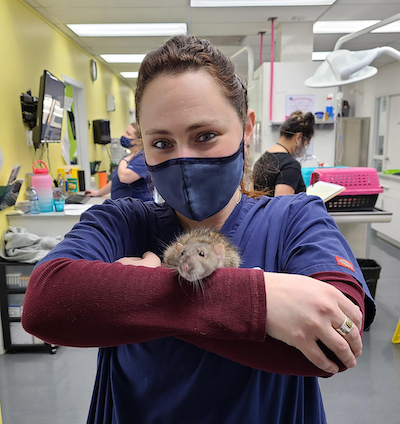
In addition to its subsidy programs, RAPS partners with organizations such as Jewish Family Services Vancouver, Tikva Housing Society, women’s shelters, homeless shelters, and senior care facilities. Martinez said veterinarians “should be open to different cultures,” to build positive relationships with pet-owning families.
Ayala Dafni, an Israeli animal technician and assistant manager at RAPS, has been “working with animals since forever,” aspiring to be a vet since the age of 4 – “everything that was legal to keep as a pet, I had growing up.” After getting her bachelor in animal science at Hebrew University, she went on to study animal assistant therapy, and manage a chain of pet stores in Israel.
Dafni is driven by “mitzvot,” she said, especially helping the community and donating to certain causes. At RAPS, she said, this translates to being compassionate and committed to understanding different perspectives. Dafni emphasized that “empathy is most important in this job” and, despite years of experience in the veterinary field, she still finds herself emotionally invested in difficult cases.
Lichtmann attributed RAPS’s corporate culture as part of the reason that Pets & Pickers was attracted to feature them. The unscripted series follows animals, their owners and the veterinarians who care for them.
To learn more about RAPS, visit rapsbc.com and tune into Season 2 of Pets & Pickers, which is also on Animal Planet in the United States. Season 1 can be streamed on Crave.
Alisa Bressler is a fourth-year student at Queen’s University in Kingston, Ont. She is an avid reader and writer, and the online director of the arts and culture publication MUSE Magazine. Bressler is a member of the Vancouver Jewish community, and the inaugural Baila Lazarus Jewish Journalism Intern.

